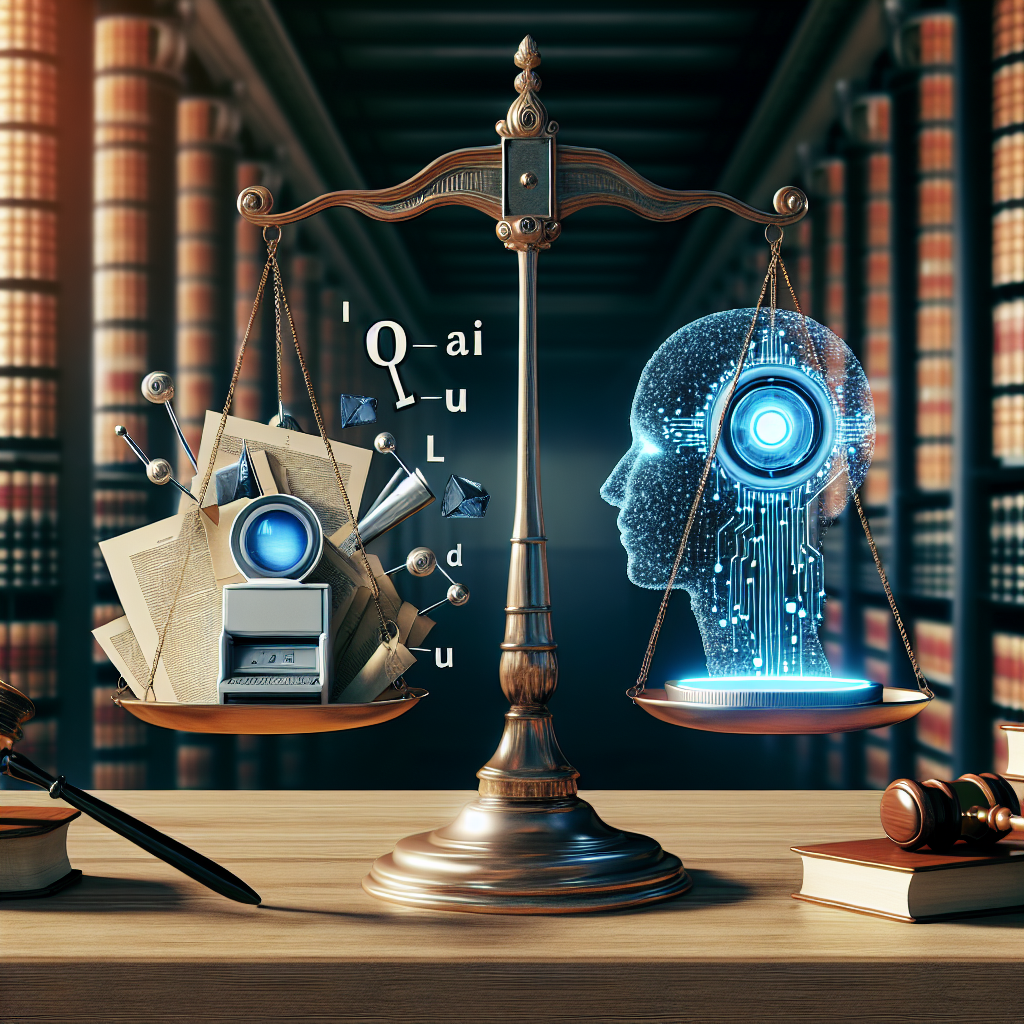In recent years, the field of artificial intelligence (AI) has made significant advancements in various industries, including the legal sector. One area in which AI has had a profound impact is in the collection and preservation of legal evidence. This article will explore the ways in which AI technology is revolutionizing the way evidence is gathered and stored, as well as the potential benefits and challenges that come with this new approach.
One of the key ways in which AI is transforming legal evidence collection is through the use of digital tools to gather and analyze large amounts of data. AI-powered software can sift through vast quantities of documents, emails, and other digital information to identify key pieces of evidence that may be relevant to a case. This not only saves time and resources for legal professionals, but it also helps to ensure that all relevant evidence is properly collected and preserved.
Another important way in which AI is impacting evidence collection is through the use of advanced analytics and machine learning algorithms. These technologies can help to identify patterns and connections in data that may not be immediately apparent to human investigators. By using AI to analyze evidence, legal professionals can gain valuable insights that may help to strengthen their case or uncover new leads.
In addition to evidence collection, AI is also playing a crucial role in evidence preservation. Digital evidence, such as emails, social media posts, and other electronic communications, can be easily altered or deleted. AI technology can help to ensure the integrity of this evidence by creating secure digital fingerprints or “hashes” that can be used to verify its authenticity.
Furthermore, AI-powered tools can help to automate the process of preserving evidence, ensuring that it is stored in a secure and tamper-proof manner. This can help to prevent the loss or destruction of crucial evidence, which can be a significant risk in complex legal cases.
Despite the many benefits of AI in evidence collection and preservation, there are also challenges and potential risks to consider. One concern is the potential for bias in AI algorithms, which may inadvertently favor certain types of evidence or overlook important information. It is crucial for legal professionals to be aware of these biases and to take steps to mitigate them when using AI technology in their work.
Another challenge is the potential for data privacy and security breaches. As AI technology becomes more sophisticated, it may become easier for hackers to access sensitive legal information. Legal professionals must take steps to ensure that data is properly encrypted and protected to prevent unauthorized access.
Overall, the impact of AI on legal evidence collection and preservation is undeniable. By harnessing the power of AI technology, legal professionals can streamline the process of gathering evidence, improve the accuracy of their analysis, and ensure the integrity of digital evidence. While there are challenges to overcome, the benefits of AI in this area are clear, and it is likely that AI will continue to play a crucial role in the legal sector for years to come.
FAQs
Q: How does AI technology help in evidence collection?
A: AI technology can help in evidence collection by sifting through large amounts of data to identify key pieces of evidence, analyzing data to uncover patterns and connections, and automating the process of preserving evidence in a secure manner.
Q: What are the potential benefits of using AI in evidence collection?
A: Some potential benefits of using AI in evidence collection include saving time and resources, ensuring all relevant evidence is properly collected, gaining valuable insights from data analysis, and preserving evidence in a secure and tamper-proof manner.
Q: What are some challenges of using AI in evidence collection?
A: Some challenges of using AI in evidence collection include the potential for bias in AI algorithms, data privacy and security concerns, and the need for legal professionals to be aware of these risks and take steps to mitigate them.
Q: How can legal professionals ensure the integrity of evidence collected using AI?
A: Legal professionals can ensure the integrity of evidence collected using AI by being aware of potential biases in AI algorithms, taking steps to mitigate these biases, and ensuring that data is properly encrypted and protected to prevent unauthorized access.

